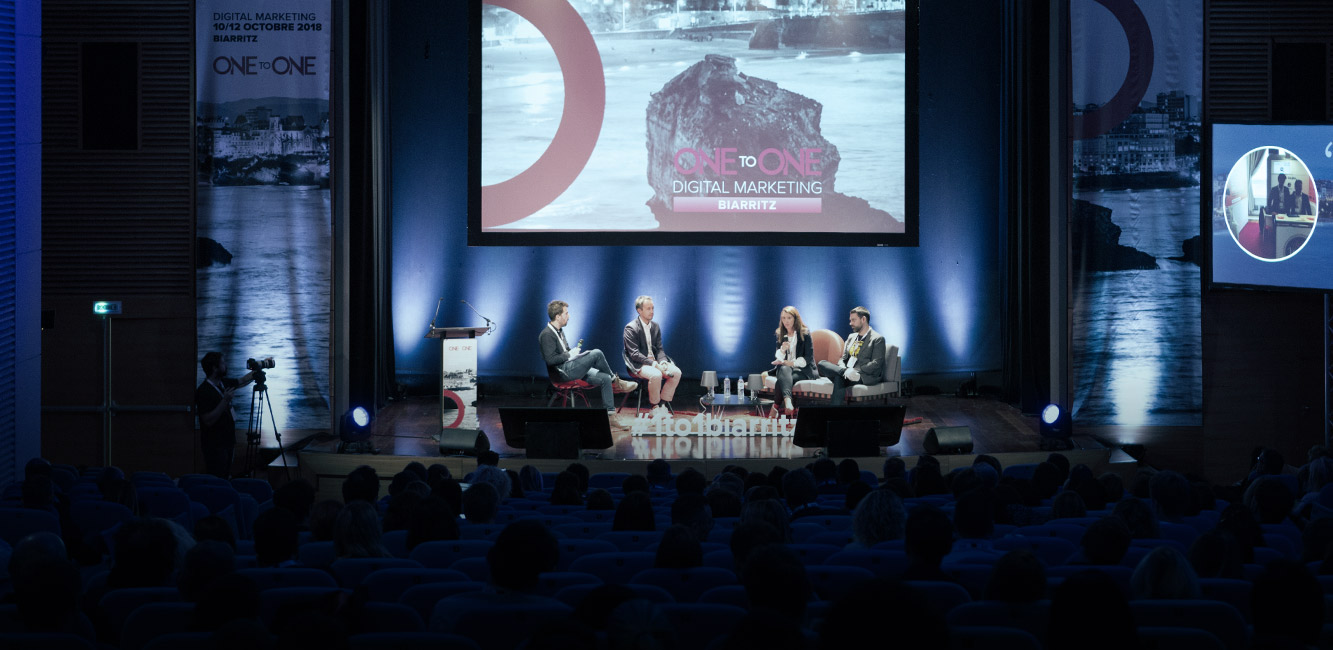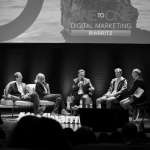First of all, can we come back to you and your company?
I ran two careers in parallel. One economist since I was a teacher at the university and parallel to that a career in the private sector. First of all, I worked for the Générale des Eaux, for which I was more interested in creative areas, convention centers, exhibitions and communication. Then I created a communication consulting agency and then worked in large agencies before creating Equancy & co, a second agency 11 years ago. I work in the field of communication for a little over 20 years. I am also author of some books on the themes of communication, a more sociological work on the theme of reconciliation, I have also written a lot of articles.
Compared to your expertise in corporate communication, what's the Internet and more recently social networks have changed in this sector? This has been so sensitive about business strategies?
Yes it was extremely sensitive for the strategy of our customers but also for our own strategies. Many of the traditional reflexes in the world of communication have been turned upside down. Internet and social networks have added a form of visibility and fluctuations of facts and events. Thus an event can quickly become national or global even if it's local. We are also in a completely new time: that of real time and this has multiplied the opportunities for crises and tensions. The web has given to see things that we didn't see before. On the other hand it multiplies the emitters with all those who can, at one time or another, give an opinion that it's more or less authorized or more or less intelligent. This completely changed the field of stakeholders of large companies.
Compared to the current situation of the web and social networks how do you analyze the current trends on responsible values, especially in the strategies of influence? What's the sensitivity of the Directorates-General and major decision-makers in this area?
This refers to the question mentioned above of the multitude of emitters on subjects. Companies like politicians or other public figures are in direct contact with what he says on social networks. Information circulating on social networks can have immediate national or global reach. Anything that can alter a company's reputation for respect for women and men, its employees, its customers but also its social or ecological dimension can be disseminated. If there is any hitch today in this form of respect, the reputation of the company can be tainted very quickly and therefore it's of major importance. In addition, companies now have a much stronger demand on these subjects of values and respect for individuals. So it has worked in both directions because we see a lot more what is happening in companies and they must be more vigilant about respect for the environment, the social and economic commitments.
How do you see things evolve between a European model driven by regulation and an American model that dominates technological and marketing innovation? Should we influence citizens in Europe and do marketing in the rest of the world?
There are no two worlds with a regulated Europe and an American world that would be totally liberated. The American world is probably one of the most regulated it is. It doesn't have forms of regulation that are necessarily analogous to the rest of the world, but it has forms of regulation through federal politics, public policies and government strategies for regulating international trade, particularly since Trump came to power. I think we must also look to the origins of regulation. In a large number of sectors, the regulation aims to protect but also to offer the maximum satisfaction to consumers. In Europe we have lost a bit of this initial objective to make it a very state-of-the-art tool whose value and purpose aren't well known. Regulation must be put back in the right direction: that which is a form of consumer protection and satisfaction. It's quite interesting to see that in recent social movements like the yellow vests, there is a demand for regulation. It isn't only the claims of taxpayers but also a request for state intervention. When one sees that fairly austere topics on digital, data protection or GAFA become topics of public debate, it's realized that this is of interest today to French and French. It's clear that consumers are wondering why we can use and market their personal data when we call Google or Facebook when they don't benefit. This mature consumer is really a very strong change on the need to regulate.
It seems that in marketing we have spent the past few months from product marketing and online marketing to influence marketing much more subtle, especially on social networks. What are your recommendations to CMOs in this area for having the right strategies?
These influence strategies have become audience strategies. We are always in the influence, that is to say, the ability to change individual choices, but also in the audience strategy because to change these choices you need the widest audience. We came back quite amusingly, and even if it's not quite the same model, to the old media strategies which were the strength of the central purchasing of spaces. What marketers are looking for today is certainly efficiency of influence but of the audience. I think they have to understand that the audience is both the ability to meet the expectations of consumers but it is also the capacity from the point of view of the issuers - companies, institutions and those who sell something - to propose content that interests these consumers. Today, the reality of the winning equation for marketers consists of consistent content, not just brand content, which is addressed internally and externally as well as by the audience.
What do you think is the right mix of media, social networks, content, events and a good strategy of influence with the values expected by a consumer citizen? Do you have a recipe?
I don't have a recipe. I think there is a fairly simple evolution today: the nerve of war is the content but not just any content. This is content away from fake news and that are consistent. You can no longer contact a consumer, a collaborator, a supplier, a politician or a journalist with different content. It must be coherent even if obviously this content will not have the same shape and will not use the same tips. There are social networks, internal communication, traditional media or even advertising but what matters and having a central platform of content that we know is structured in such a way that it's able to transform the contents to make them audible by the various stakeholders. Then you need people with enough experience to find the right audience and the right thing: video, chat, press conference, etc. Evolution is here. This really helps to convey consistent commitments and values because the basic content is consistent.
Finally, what are the three values that you think will be used in the context of tomorrow's marketing?
Authenticity, proximity, accessibility. Authenticity because there is a return to the idea of simplicity of the products. Proximity because we return enormously to the consumer benefit. So in political analysis, we see that people are sensitive to the opening of shops on Sunday, Macron cars, the highway code that can be passed to the post office, these are things close to people. Accessibility is absolutely crucial. We see it today because people have entered systems with almost social jealousy. You can't inundate people who have purchasing power problems with travel images that are ultimately inaccessible to them. We are creating frustration. It is necessary to break this phenomenon created by an imbecile marketing treating the masses of people in the same way and creating on the contrary of the exclusion.



